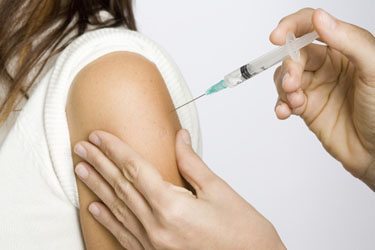New York Bill Would Allow Teens to Get HPV Vaccine Without Parental Consent
A new bill in the New York State Assembly would allow minors to consent to receiving the HPV vaccine without parental consent. Unsurprisingly, it has been met with some opposition.

Minors in New York are already allowed to access sexually transmitted infection (STI) testing and treatment without their parents’ consent. However, a new bill in the assembly, which seeks to add access to STI prevention methods, including vaccinations, has been met with opposition from individuals who say it goes too far.
The existing law allows health-care providers to diagnose, treat, and provide medication for people under age 18 without the consent or knowledge of their parent or guardian if the person has an STI or has been exposed to one. Similar laws exist in all 50 states and the District of Columbia. A recent review by the Guttmacher Institute found that:
- All 50 states and the District of Columbia explicitly allow minors to consent to STI services, though 11 states require that a minor be of a certain age (generally 12 or 14) before being allowed to consent.
- Thirty-one states explicitly include HIV testing and treatment in the package of STI services to which minors may consent.
- Eighteen states allow physicians to inform a minor’s parents that he or she is seeking or receiving STI services; however, with the exception of one state that requires parental notification in the case of a positive HIV test, no state requires that physicians notify parents.
AB 497 would amend the New York state law to specifically address prevention. It adds the following language:
A health care professional may provide health care related to the prevention of sexually transmissible disease, including administering vaccines, to a person under the age of eighteen years without the consent or knowledge of the parents or guardians of such person, provided that the person has capacity to consent to the care, without to regard to the person’s age.
This bill is clearly meant to increase the number of young people who get the human papillomavirus (HPV) vaccine (sold under the brand names Gardasil and Cervarix). Other than vaccinations for HPV and the less controversial vaccine for hepatitis B, STI-prevention health care is limited to the provision of condoms, which have never required parental consent.
Given how controversial the HPV vaccine has been, it is not surprising that this bill is facing opposition. In fact, one lawmaker who initially supported the bill has changed his mind, apparently after an onslaught of comments from his constituents. Assemblyman Dennis Gabryszak (D-Cheektowaga) told local news station WIVB that he agreed with the law’s goal of preventing STIs but reconsidered his initial support for the bill because “there’s some concern over whether or not the vaccine could lead to some other health problems.”
As Rewire reported a few months ago, those concerns are unfounded. A 2009 report co-written by the Centers for Disease Control and Prevention (CDC) and the Food and Drug Administration, for example, combed through the Vaccine Adverse Event Reporting System (VAERS) reports regarding Gardasil and found that 23 million doses had been administered in the United States between June 2006 and December 2008. In total, there had been more than 12,400 reports of adverse events following HPV vaccination. The vast majority of these cases (94 percent) were not serious and included fainting, pain, and redness at the site of the injection, dizziness, nausea, and headache. Though there were more serious cases, including blood clots, neurological symptoms, and death, the report was unable to find any evidence suggesting that the vaccine itself was the cause of these problems. In fact, in all of the cases of death, autopsies confirmed other causes. Ultimately, the CDC concluded that “[c]linical trials and post-licensure monitoring data show that both vaccines [Gardasil and Cervarix] are safe.”
If the law passes, New York would not be the first state to allow minors to consent to the HPV vaccine; California passed a law in 2011 that allows minors to receive the HPV vaccine without parental consent. That law also met with opposition from lawmakers as well as parents who argued that they should know what medications are in their child’s system.
